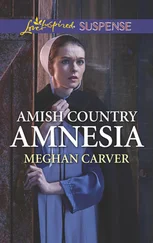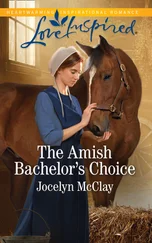Sophie was frowning. She could see where this was going and she didn’t like it. Well that was too bad for her.
‘They used to weigh up the relative attractiveness of freshers in college, and bet each other that they could seduce them. They were quite successful. Anyway, Maurice picked on me as a victim for Stephen. Apparently he thought I was handsome and rough. The wager was ten pounds.’
Sophie’s frown had deepened. Good.
‘I was difficult. Stephen tried hard, he tried damn hard. But he never earned his ten pounds.’
Sophie was staring at me, her expression one of disgust. Very good.
‘That doesn’t explain how you became friends,’ she said.
‘No,’ I said. ‘But it should warn you that Stephen likes men as much as he likes women. More.’
The expression of disgust deepened. Suddenly I realized that Sophie’s distaste was aimed at me, not Stephen.
‘There is an English word “hateful”, is there not?’
I nodded.
Sophie’s disgust had turned to anger. There was moisture in her eyes, but also fire. Her cheeks were red. ‘That was hateful. You are hateful, Angus!’
She turned on her heel and left the den.
I closed my eyes. My own anger had been flattened by Sophie’s. What the hell was I thinking? She was right, of course. She was absolutely right. And I had given her a completely misleading idea of Stephen’s and my friendship, which was based on so much more than that initial failed seduction. Yes, I had misled Sophie, and I had earned her contempt. I had earned my own contempt. Yes, Stephen should have told me about Sophie, of course he should. But he hadn’t, and I should forgive him. The fact that I couldn’t do that was my problem.
I had behaved appallingly badly and I was in danger of ruining everything for everyone. I was ashamed of myself, so ashamed. I had to leave the island right away. Run. So I hurried back to the villa, apologized to Tony and to Nathan and Madeleine, and caught the 4.30 p.m. steamer back to Naples with five minutes to spare.
I had a war to fight. A war in which, perhaps, I might die.
Or perhaps Stephen would.
Monday 15 March 1999, Wyvis
Clémence closed the book and looked up to meet the old man’s gaze. His eyes were full of pain.
‘I didn’t behave very well, did I?’ he said.
‘Not really, no,’ said Clémence.
‘I wish I had behaved better.’
‘Do you remember any of it at all?’
‘Yes,’ said the old man. ‘Yes, I do. Bits. I remember that opium den in the Villa Fersen. I remember Tiberius’s jump. I remember Stephen now, I can see him and Sophie up there.’
‘That’s something,’ said Clémence.
‘You know how I described the hole in my memory — like a gap in the centre of a picture?’
‘Yes.’
‘It’s as if I can begin to see vague shapes in the middle of that picture. Disjointed shapes. I don’t know, it’s like a half-finished jigsaw puzzle where you have done the edges and are making a start at the centre.’
‘I think I understand,’ said Clémence. ‘Can you remember anything about what happens next?’
The pain intensified in the old man’s eyes. ‘That’s the thing. I’m not sure I want to see the picture. The whole picture.’
For a moment Clémence considered reading out the prologue. But the old man would discover what happened to Sophie soon enough; Clémence didn’t want to scare him off. They were making progress with the jigsaw. That was her job. And she was fascinated.
Now she knew how her grandmother and grandfather had met. They had obviously loved each other. She supposed everyone’s grandfathers and grandmothers must have loved each other at some point, but she felt privileged to see hers on the page. Especially since her family had subsequently blown itself apart.
‘Do you remember writing it? Making the jigsaw?’
‘I think so. I think I can remember writing that last scene in the opium den. I can remember the shame. I’m sure now it was me who wrote the book. I am Angus Culzie. I am Angus. The book is the truth, it’s not a novel.’
Clémence waited for him to say more.
‘It’s my life. I need to become reacquainted with it if I am going to live with it. However unpleasant it will be.’
‘So we’ll read some more tomorrow?’
‘Yes.’ He stared hard at the fireplace, as if looking for an answer behind the glowing logs. ‘How old are you, Clémence? Nineteen?’
‘Twenty.’
‘About the same age as I was when I met Sophie. Have you ever loved anyone like that? Or is the world different now?’
Mind your own business, thought Clémence. But his eyes were pleading. Pleading for what? Understanding probably. Besides which, she had just read his innermost thoughts, his obsession.
‘I had a thing for a boy in the year above me at school,’ she said. ‘For a few weeks I would wake up every day and pray he would talk to me. But that passed. He went out with Gaby Porter. Turned out he was a bit of a...’ She had wanted to use the word ‘prick’, but hesitated in front of the old man. ‘Not-very-nice guy.’
‘Poor Gaby Porter.’
‘No. She deserved him. I never liked Gaby Porter since she stole my favourite pair of leggings and claimed they were hers.’
‘What colour were they?’
‘The leggings? Sort of purple, I think. I got them at Topshop. Why?’
‘Just want to get the full picture. And now? Is there anyone now?’
Clémence smiled shyly. ‘There’s a guy called Callum. From uni. We’ve only been going out three weeks. But I miss him, now. He’s gone home to Glasgow to work in a pub.’ She looked at the old man guiltily. ‘I asked him to come up here and stay with me.’
‘Good,’ said the old man, with a smile. ‘I’d like to meet him.’
For a moment Clémence thought that she would like Callum to meet the old man too. Then she remembered what he had done. ‘But no. That’s nothing like your obsession for my grandmother.’
‘Yes.’ The old man put his head in his hands. ‘Your grandmother.’
Clémence felt sorry for him, she couldn’t help herself. He already knew his obsession was wrong. He had no idea yet how wrong. Or did he? For the first time she wondered if, in fact, he had an inkling.
‘It’s weird about Grandpa and his mother in Antibes,’ she said.
‘What do you mean?’ said the old man.
‘How he felt abandoned by her. And then how he was worried she would jump on Angus. On you.’
‘The upper classes led pretty racy lives in those days.’
‘Yes,’ said Clémence.
The old man looked at her closely. ‘That’s not what you meant though, was it?’
‘No,’ said Clémence.
They sat in silence. A comfortable silence. Then the old man spoke. ‘You can tell me if you like. I won’t tell anyone else. And I’ll probably forget it anyway. It might make you feel better, though your family life has nothing to do with me.’
Clémence was about to shake her head, brush him off, take the book back upstairs, shut herself in her room away from him, but something stopped her. It was those brown eyes, the air of calm attention. She didn’t know who the hell Alastair Cunningham was, she had barely even heard of him until a few days before, and yet she felt she knew him. It was partly because she had just read out loud his most intimate secrets as a young man, but it was more than that. She felt he was on her side. And she desperately needed someone to be on her side.
Callum was, of course, but she was too ashamed to tell Callum, at least not yet. But the old man? After all the bad stuff she had read about him, it didn’t seem wrong to share the shame.
Читать дальше












